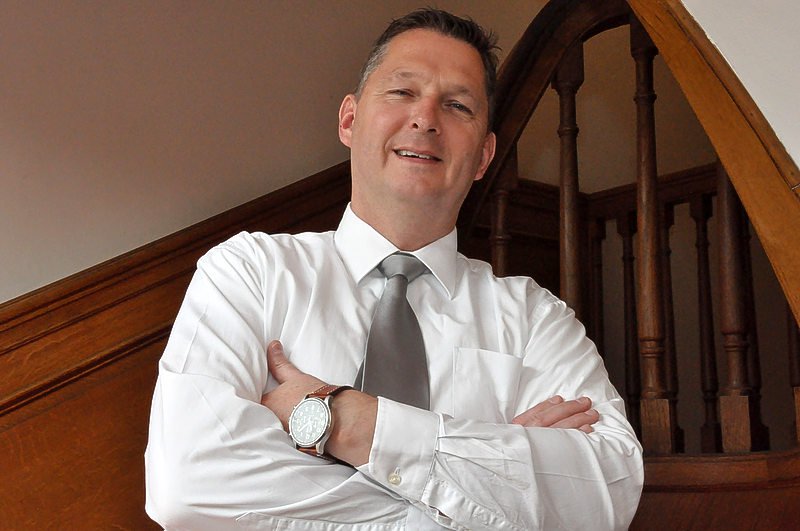
THE HAGUE–Member of the Second Chamber of the Dutch Parliament André Bosman of the liberal democratic VVD party on Monday submitted a series of technical questions to the Dutch government about the decolonisation process of the Dutch Caribbean islands.
The so-called “Written Statement of the Kingdom of the Netherlands” of February 27, 2018, to the International Court of Justice was the main reason for Bosman to submit no less than 19 questions to State Secretary of Home Affairs and Kingdom Relations Raymond Knops.
The written statement of the Kingdom was in relation to the decolonisation process of Mauritius. As a UN Member State and also a party to the Statute of the Court, the Dutch Kingdom made use of the opportunity afforded by the Court to make a written statement.
Member of Parliament (MP) Bosman found it interesting that one article in that statement mentioned that once a people has specifically opted for a particular constitutional status, this means that the full self-government has been achieved in the context of decolonisation.
Bosman wanted to know when that point of full self-government was reached in the case of the former Dutch colonies, the countries Aruba, Curaçao and St. Maarten and the public entities Bonaire, St. Eustatius and Saba, in relation to the Dutch decolonisation.
The MP noted that, according to the 1960 United Nations (UN) Resolution 1514, a (new) status “should be the result of the free and voluntary choice by the peoples of the territory, expressed through informed democratic processes.”
Bosman asked how free the former Dutch colonies were in making their own choice considering the way the Kingdom Charter was established and why it took many years of negotiations between the Netherlands and the Netherlands Antilles to give the countries of the former colonies their right to self-governance.
“Which role did the Dutch government play in these negotiations? How much room did the former colonies have to make their own free choice? Was there pressure or were there limitations in the free choice of the former colonies?”
In this regard, Bosman referred to a specific line in the written statement: “However, if negotiations on such future cooperation are used by the administering State to influence the act of free choice by the people concerned, this may amount to unlawful interference and thus to a violation of the right of self-determination of this people.” He asked the State Secretary to qualify this quote.
Bosman wanted to know whether during the negotiations to arrive at a decolonisation, restrictions were imposed on the countries in their choices due to shortcomings of political, social or educational issues. “If so, how does this relate to the UN 1514 Resolution which states: ‘Inadequacy of political, economic, social or educational preparedness should never serve as a pretext for delaying independence?’”
The MP referred to the integration of St. Eustatius in the Dutch Constellation. The written statement of February 2018 said about this: “Integration should be the result of the freely expressed wishes of the territory’s peoples acting with full knowledge of the change in their status, their wishes having been expressed through informed and democratic processes.” He asked: “How should I read this in relation to the integration of St. Eustatius in the Dutch Constellation without the people of St. Eustatius having been able to make their choice?”
The MP made reference to article 73 of the UN Charter, the article which requires countries administering those colonies “to develop self-government, to take due account of the political aspirations of the peoples and to assist them in the progressive development of their free political institutions.”
In the written statement of the Kingdom it was stated that: “It is submitted that once the inhabitants of a colonial territory have, through their freely expressed will, genuinely exercised their right to self-determination through a choice for either independence, integration or association or the emergence into any other political status, the colonial status of the territory and the people concerned comes to an end.
“Does that mean that the Kingdom no longer resorts under article 73 of the UN Charter? How does that relate to what Minister Ronald Plasterk said during the 2017 budget handling, namely that the Kingdom still resorted under article 73?” asked Bosman.
The MP inquired what had changed in the vision of the Dutch government in the period between Plasterk’s announcement and the written statement which states that decolonisation is definite after a first choice of the former colonies. “In what way have the Dutch Caribbean been involved in drafting the written statement?”
Bosman also wanted to know whether the 1514 UN Resolution has retroactive power, and if so, whether this has been discussed with the Dutch Caribbean islands. “What is the view of the islands regarding the definite status of the decolonisation? Have they given their formal approval?”
As for the role of the Kingdom Council of Ministers, the MP asked how the representation of all people in the Kingdom was secured in this Council and how this related to the fact that the Ministers Plenipotentiary of Aruba, Curaçao and St. Maarten only have a consultative voice in this Council.
Bron: Daily Herald

